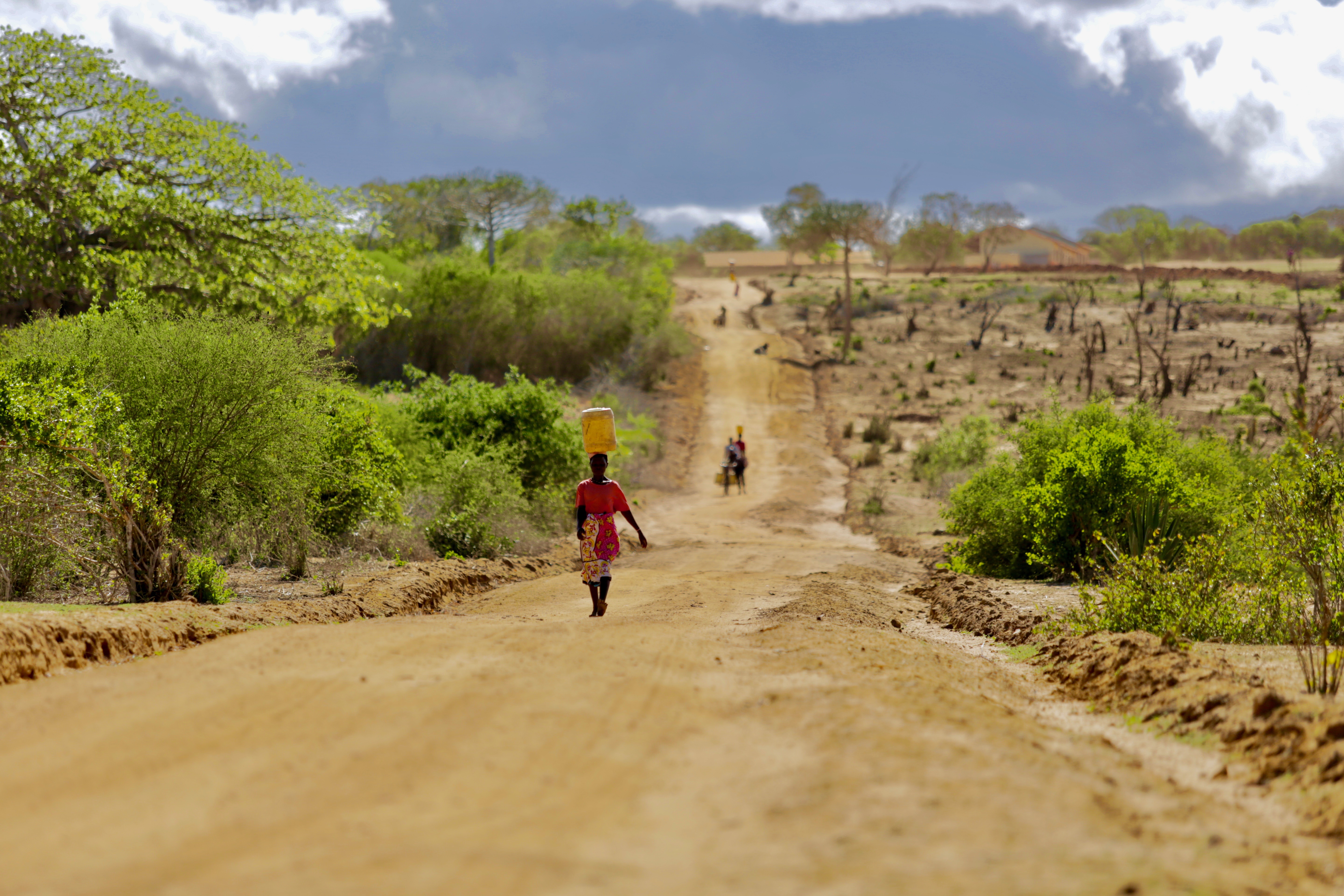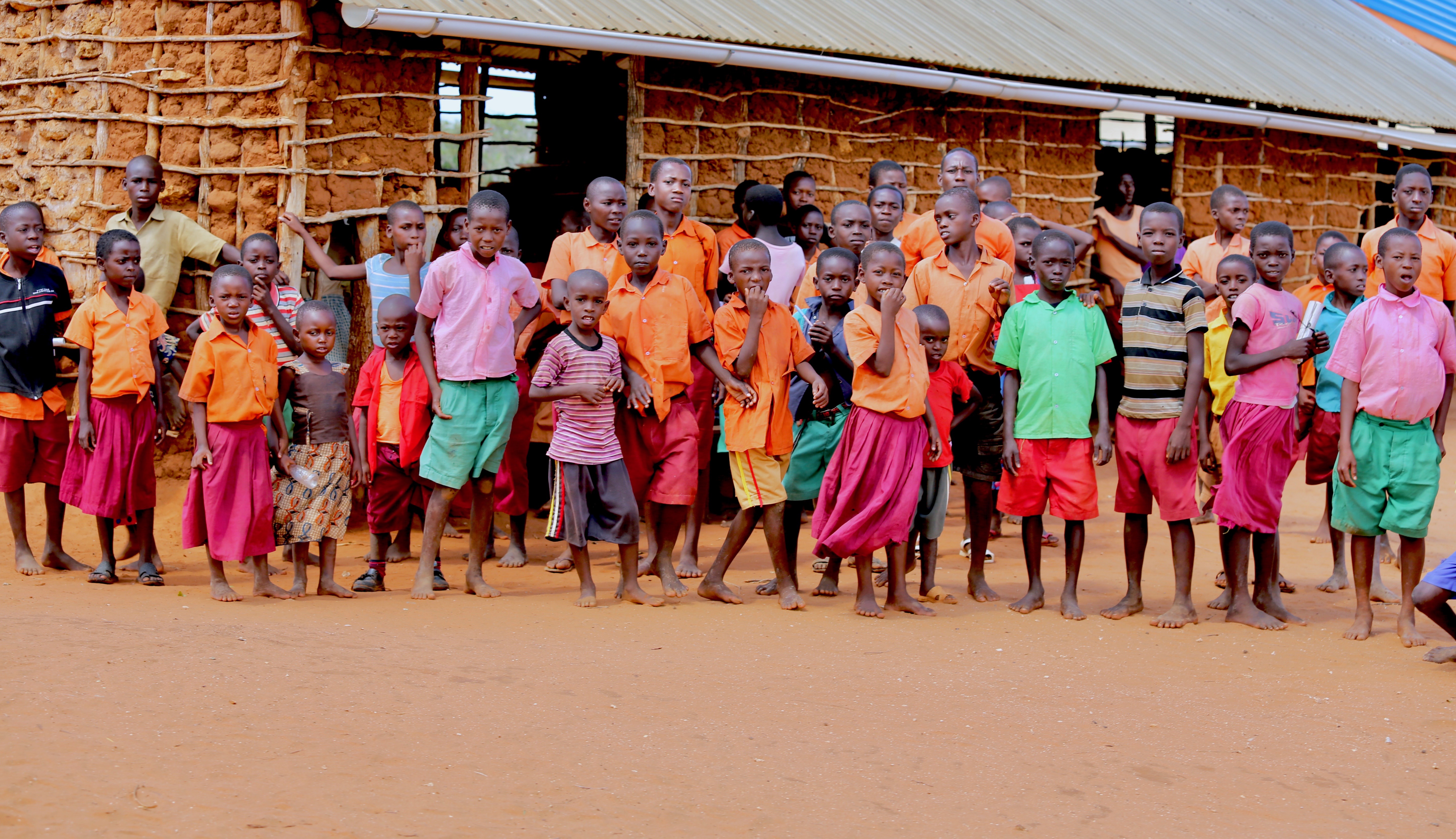We Take It for Granted, but This Woman Has Walked 190,000 Miles for This Daily Need
KILIFI COUNTY, Kenya – The next time you turn on your tap think of Kanze Kahindi.
"I would be a lot healthier than I am today if I didn't have to travel so far for water," said Kanze Kahindi.

Kahindi lives in sub-Saharan Africa where an estimated 319 million people have no access to safe drinking water.

Twice a day, she leaves her small hut made of sticks and stones, here in rural southeast Kenya, and walks with others from the village to the nearest place she can find water.

"My legs are sore, my back hurts, and I'm always in pain."
For many of us, water is just a tap away. For Kahindi, getting access to life's most basic need is anything but easy.
"I've been fetching water since I was seven years old."

After traveling 8,600 miles from CBN's headquarters, this reporter boarded a small plane from Kenya's capital city of Nairobi and flew three hours southeast to the coastal city of Malindi.
From there, I literally journeyed through the African bush to reach Kanze Kahindi family's small hut tucked in a corner of Kilifi County.

My 8,600-mile journey to meet Kanze Kahindi
CBN News joined her and others as they made the daily trek to the only source of water hours away: a muddy pond polluted by animal and human waste.
Kahindi fetches water from this pond morning and evening. She walks about 13 miles each day – which means she walks roughly about 4,500 miles every year.

She has been doing this for the last 40 years, which means she has walked close to 190,000 miles.
"Now, my children and grandchildren are doing what I did when I was young," she told CBN News while preparing to make the journey back to her hut.
Hard to believe, really, but Kahindi is not alone.
A staggering one billion people around the world don't have access to clean running water. And 40 percent of them live in sub-Saharan Africa where people walk hours a day for just a few cups of water.

In Africa alone, where the burden of fetching water often falls to women and children, nearly 40 billion hours a year are spent collecting water.
Dudu Mwero teaches math at a rural primary school in Kilifi County, Kenya.
He says time spent gathering water is time children could be learning to read, write, earn an income or take care of their family.
CBN News asked Mwero what percentage of his class fetches water each day.

"Seventy percent of my students fetch water every day," he replied. "When they come to class, they are often very tired from all that walking. Their attention level is down and their performance is poor."
And the water his students spend all that time collecting isn't even clean. About 2,000 children die each day from water-related diseases.
Like Kahindi, Hannah Nyale grew up collecting water for her family's survival and often got sick.
Now, she's with the Christian organization World Vision trying to improve water conditions in one of the poorest counties in Kenya.

"I'm so passionate to improve the situation here because it is an experience that I went through," Nyale told CBN News. "I used to walk six kilometers [roughly four miles] to get water as early as five years old."
Since 2008, World Vision has drilled borehole wells and installed hundreds of miles of pipeline to transport water to tens of thousands of families across this desert region.
"When we came here it was at 18 percent, but currently the access to clean water has improved to 62 percent, which is a big relief to this community," Nayle said.

Soon Kanze Kahindi's village will have access to clean water for the first time.
"I cannot wait for this day to happen," exclaimed Kahindi. "After all these years, I'll be able to walk just a few minutes to the closest tap."
World Vision is installing a new solar-powered borehole well that will bring water to countless families. CBN News was there recently when community members and World Vision drillers and staff gathered to watch the water spout from the ground.
Watch the joyous moment as scores of men, women & children sing and dance at the sight of clean water.
"This water will bring new life to our communities," said one resident, as she stood watching World Vision drillers.
Young boys could be seen washing their legs and hands with water gushing out from the pipes.
Others used cups to capture water.
"This is a great day for them [the villagers gathered] and that's why you see them celebrating," said Francis Huhu, World Vision's drilling manager.
"The water is dirty now, but once it has gone through the process, it will eventually bring health to the surrounding villages," said one of the World Vision drillers. "It is rewarding to know that we are going to bring a big change to this area with fresh water."
World Vision helps bring clean water to parts of Africa
Huhu checks the water flow repeatedly to make sure the source they tapped will be good for the many years to come.
"We are saving thousands of lives, we are also transforming the lives of many, many children because many of them will be able to go to school now," said Huhu.
Fatuma Rumba has experienced the transformation that comes from having access to clean water.

She used to spend four hours a day walking for water until World Vision drilled a well in her community a few years back.
Now, the trip to the tap takes only a few minutes, the rest of her time is spent tending to a small vegetable garden that feeds her family and nearby communities.
"You take water for granted, but for us here it is gold," said Rumba. "Our children are clean, they are healthy and they can go to school."
The village school also has water, which means Rumba's kids are in class and not out walking dirt paths looking for water.

"World Vision installed a water tank near the school classrooms so when it rains, the water is captured and the kids have clean water to drink," said Nicolas Mutiso, a community leader.
In addition to building wells and protecting existing water sources, World Vision is building latrines across Kenya.
Some 18 percent of rural populations in the country practice open defecation since many don't have access to basic toilets.

Jacob Karisa worked with World Vision to identify the needs in his community. Since 2008, the NGO has built some 1,200 latrines in a corner of southeast Kenya and taught thousands of families about sanitation and hygiene.
"For so long people would come to area clinics complaining about stomach aches and other problems related to poor sanitation and hygiene practices," said Karisa, a community health leader that's partnering with World Vision.

"However, since we implemented World Vision's WASH [Water, Sanitation and Hygiene] program, there's been a remarkable change in the health of the people," he added.
Mind you, fetching water isn't just time-consuming, it's physically demanding.
Kanze Kahindi uses a jerrycan, a bright yellow plastic container, to carry the water.

When filled to the brim, it holds 5 gallons and weighs 20 kilos or 40 pounds. And often, the arduous task of collecting clean water falls on the literal shoulders of women and children.
One of the women who accompanied Kanze Kahindi to the pond that day was even carrying a little baby on her back.
Cameras capture the backbreaking efforts women & children endure to carry their heavy loads, along with other precious cargo.
Experts say there's a water crisis that threatens the future for hundreds of millions of people.

Yet, aid groups like World Vision and others are working tirelessly to bring clean, safe drinking water much closer to the people who need it.

In the hopes that ultimately, that access will mean education, income and health, especially for women and children here in Africa and around the world.

Want to help bring clean running water to people in Africa? Support Christian organizations like World Vision, Operation Blessing, CBN Disaster Relief and Orphan's Promise as they work in water-stressed regions of the world.




